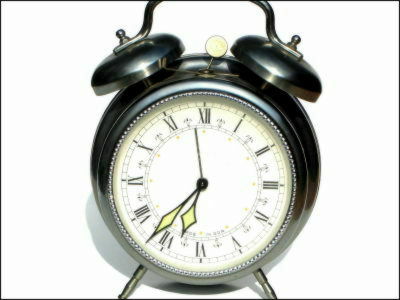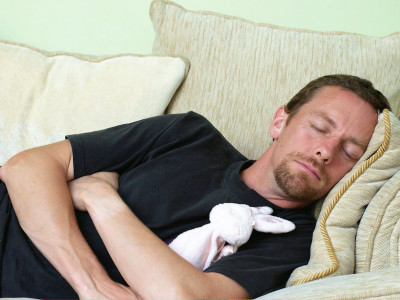How many people can get up with one alarm when waking up in the morning?

There should be many people who set the alarm at the wake-up time, but there should be many people who set 'snooze' at the same time as the alarm to prevent sleeping twice. A survey conducted by researchers at the University of Notre Dame found that more than half of those who use alarm clocks do not wake up with the first alarm and wake up with the second or third snooze.
Snoozing: an examination of a common method of waking | SLEEP | Oxford Academic
Most of Us Hit Snooze. But What Is It Actually Doing to Us? : ScienceAlert
https://www.sciencealert.com/most-of-us-hit-snooze-but-what-is-it-actually-doing-to-us
Hitting the snooze button? You're far from alone, study shows | News | Notre Dame News | University of Notre Dame
https://news.nd.edu/news/hitting-the-snooze-button-youre-far-from-alone-study-shows/
When Steven Mattin of the University of Notre Dame and others investigated the sleep situation of 450 people who usually work full time, they said that 57% actually slept twice. Tendency to sleep twice also changed by gender and age, women were 50% more than men, night owls and younger people tended to sleep twice more often.
Regarding the health effects of double-sleeping, previous research has shown that ``extending sleep for about 10 minutes cannot be expected to have a physical recovery effect'' and ``because the brain is confused by the secretion of chemical substances that induce sleep''. I'm getting results.

The results of this study also showed that ``people who sleep twice tend to have sleep patterns that indicate signs of sleep disorders more than those who do not.'' No conclusive evidence was found. Instead, I found out that 'the alarm itself is not good'.
You sleep as much as you want, and just before you wake up, your body triggers a stress response. This physiological response makes you feel refreshed when you wake up. Alarms can also disrupt your natural sleep cycle and cause excessive drowsiness, including fatigue.

``Rather than hitting the snooze button less often, it's about getting more sleep, getting the right amount of sleep, staying on a regular schedule, and getting as calm and undisturbed sleep as possible,'' the researchers said. rice field.
Related Posts:
in Science, Posted by log1p_kr







